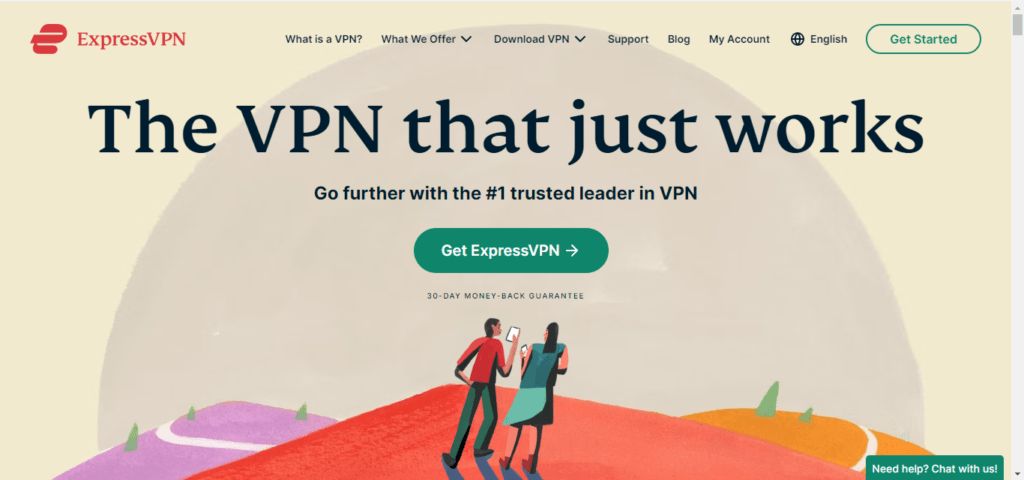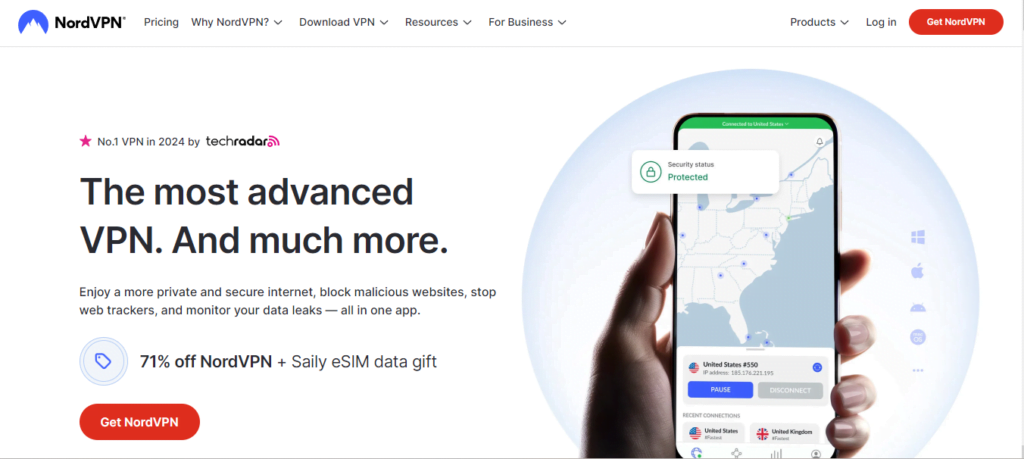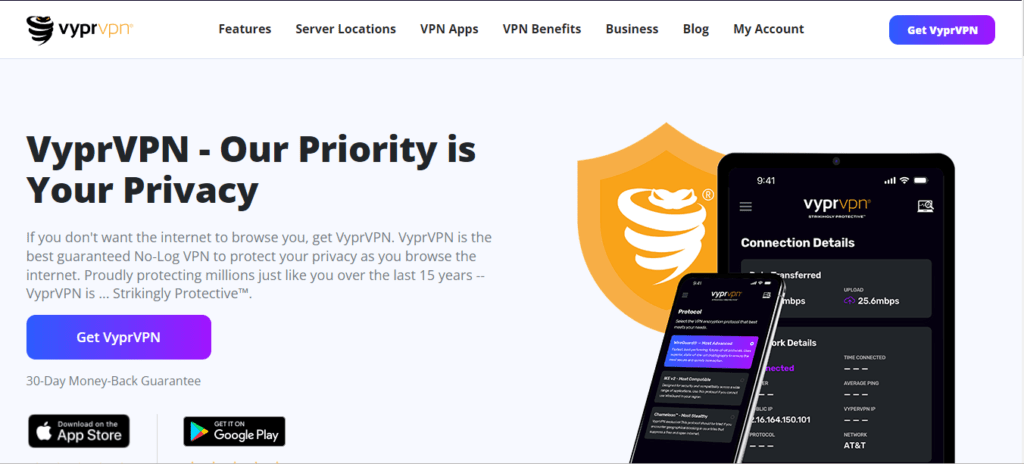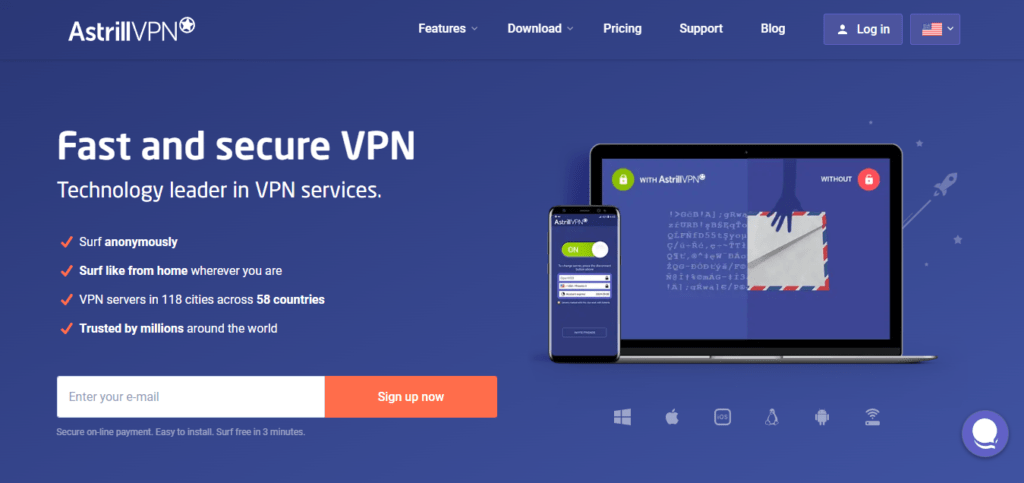What Are the Best Virtual Private Networks (VPNs) for Use in China?

Hi there, pals If you’ve been searching for the finest virtual private networks (VPNs) to use in China, your search is over since this article has everything you need to know about more stable and easy-to-setup VPNs that operate well on PCs, Macs, and smartphones.
Whether you live in China or are just visiting, there are unique challenges when it comes to having an unfettered internet connection. Due to its severe internet censorship, China’s Great Firewall is notorious for blocking a plethora of popular websites and apps, such as YouTube, Facebook, and Google. In this case, individuals can circumvent these restrictions and access the global internet with the aid of virtual private networks, or VPNs. However, not all VPNs are created equal, especially in a country with as much repression as China.
This article covers the best VPNs for PC, Mac, and smartphones in terms of compatibility, ease of setup, and dependable connection to help you stay connected when visiting China.
What to Look for in a VPN for China
Choosing the right VPN for use in China can be daunting, but focusing on a few key features can simplify the process.
Reliability and Speed
Reliability and speed are critical considerations when selecting a VPN for use in China. The Great Firewall may slow down or disable VPNs because of the strict censorship. Consistent performance with no downtime is what a decent VPN should provide.
Security Features
Security is another critical aspect. Look for VPNs that provide strong encryption, a kill switch, and a no-logs policy to protect your data from prying eyes.
Device Compatibility
Your chosen VPN should be compatible with all your devices, whether you use a PC, Mac, or smartphone. It’s also beneficial if the VPN allows multiple simultaneous connections.
Ease of Setup
Select VPNs with simple installation and easy-to-use interfaces because navigating VPN configurations can be challenging, particularly in constrained environments.
What Are the Best Virtual Private Networks for China
Finding a VPN that works effectively in China is crucial. Here are some of the best options available:
ExpressVPN

Features:
- High-speed servers in multiple countries
- Strong encryption and security protocols
- 24/7 customer support
- User-friendly apps for all devices
Pros:
- Reliable and fast connections
- Excellent customer service
- Easy to set up and use
Cons:
- Higher price compared to other VPNs
User Experience: In China, ExpressVPN is frequently regarded as the best VPN provider. It guarantees that consumers may easily get beyond the Great Firewall thanks to a global network of fast servers. Your data is protected by the security features, which include stringent no-logs policies and AES-256 encryption. Although it is more expensive, the performance and dependability it provides make it worthwhile. Excellent round-the-clock customer service is another feature of ExpressVPN, especially for those who are having trouble connecting in China.
NordVPN

Features:
- Double VPN and Onion over VPN for extra security
- Large server network
- No-logs policy
- Cross-platform compatibility
Pros:
- Strong security features
- Competitive pricing
- Easy to use
Cons:
- Occasional speed drops
User Experience: Another great option for Chinese consumers is NordVPN, which is renowned for having strong security measures. An additional degree of security is added by the double VPN and onion over VPN technologies, which make it harder for authorities to keep an eye on your online activity. Additionally, NordVPN has an extensive server network, so you can choose from a variety of choices to have the quickest and most dependable connection. Even though consumers may occasionally notice a decrease in speed, overall performance is still rather good. Even non-techies may easily navigate NordVPN thanks to its user-friendly layout.
Surfshark

Features:
- Unlimited device connections
- CleanWeb feature to block ads and malware
- NoBorders mode for restrictive regions
Pros:
- Affordable pricing
- Great for families or multiple device users
- Consistently bypasses the Great Firewall
Cons:
- Smaller server network compared to others
User Experience: A cost-effective VPN that doesn’t sacrifice performance is Surfshark. Its unique characteristic of supporting an infinite number of devices at once makes it perfect for people with several gadgets or families. By preventing viruses and advertisements, the CleanWeb function improves your online experience. With Surfshark’s NoBorders mode, you may circumvent internet blocks in countries like China and still access the content you require. It nonetheless provides dependable performance and speed even though its server network is smaller than that of other rivals.
VyprVPN

Features:
- Chameleon protocol to defeat VPN blocking
- Owns and operates all its servers
- High-speed connections
Pros:
- Excellent at bypassing restrictions
- High security and privacy standards
Cons:
- Limited simultaneous connections
User Experience: The Chameleon protocol, which is unique to VyprVPN, jumbles your VPN traffic so the Great Firewall can’t identify it as much. For users in China, this makes it a strong option. VyprVPN guarantees better security and quicker speeds because it owns and runs its own servers. Although VyprVPN has fewer simultaneous connections than other VPNs, it is still a good choice if security and dependability are your top priorities.
Astrill VPN

Features:
- StealthVPN protocol
- Optimized for speed in China
- Allows multiple devices
Pros:
- Reliable performance in China
- Advanced obfuscation features
Cons:
- More expensive
User Experience: Because of its StealthVPN protocol, which is intended to evade detection by the Great Firewall, Astrill VPN is a top-tier VPN service that performs very well in China. It is designed to function well in China’s constrained internet environment and provides high-speed connections. It is one of the more costly solutions, but for those that require dependable and continuous connectivity, the cost is justified. Astrill VPN is a flexible option for both individuals and families, as it supports a multitude of devices.
Setting Up a VPN in China
Getting your VPN up and running in China involves a few crucial steps. Here’s a comprehensive guide:
Downloading and Installing the VPN
- Before Arrival: It’s best to download and install your chosen VPN before arriving in China. Websites of many VPN providers are blocked within the country.
- Installation: Follow the provider’s step-by-step installation guide, which usually involves downloading the app, logging in, and selecting a server.
Configuring the VPN
- Server Selection: Choose servers in countries near China (like Hong Kong or Japan) for better speeds.
- Protocols: Use protocols like OpenVPN, L2TP, or the provider’s proprietary protocols for better performance.
Troubleshooting Common Issues
- Connection Drops: Ensure you have the kill switch enabled to prevent data leaks.
- Slow Speeds: Switch servers or change protocols if you experience slow speeds.
- Blocked Servers: Regularly check for new server updates from your VPN provider as servers often get blocked.
Pre-Arrival Preparation
- Download Backup VPNs: Have a secondary VPN downloaded and ready in case your primary choice gets blocked.
- Backup Installers: Keep installer files on a USB drive or external storage for easy access if you need to reinstall.
VPN Performance on Different Devices
VPNs on PC
- PCs generally have robust VPN clients that offer extensive features and customization options.
- Ensure your VPN client supports the latest Windows or Linux versions for optimal performance.
VPNs on Mac
- Look for VPNs with dedicated macOS apps that provide a seamless experience.
- Compatibility with macOS security features is a plus.
VPNs on Smartphones (Android and iOS)
- Mobile VPN apps should be lightweight yet robust, ensuring minimal impact on device performance.
- Ensure the app has auto-connect features to maintain security on the go.
VPNs on Tablets
- Tablets often have similar requirements to smartphones. Ensure your VPN provider offers apps that are optimized for tablet use.
VPNs on Routers
- Setting up a VPN on your router can protect all devices connected to your home network.
- Ensure your router is compatible with VPN installations and follow the provider’s guide for setup.
Security and Privacy Concerns
Encryption Standards
- Opt for VPNs that use AES-256 encryption, the industry standard for security.
No-Logs Policies
- A strict no-logs policy ensures that your online activities are not recorded or stored.
DNS Leak Protection
- DNS leak protection prevents your ISP from knowing which websites you visit, ensuring your privacy is intact.
Data Privacy and VPN Usage
- Ensure your VPN provider doesn’t collect personal data or share it with third parties. Transparency in data handling is crucial.
Protecting Personal Information
- Use additional security features like two-factor authentication (2FA) to secure your VPN account.
Navigating the Great Firewall
How VPNs Bypass Restrictions
- VPNs use encryption and obfuscation to mask your internet traffic, making it appear as regular, non-VPN traffic to bypass the Great Firewall.
Importance of Obfuscation Features
- VPNs with obfuscation features are better at avoiding detection and blocking by Chinese authorities.
Staying Updated on Firewall Changes
- The Great Firewall’s methods are constantly evolving. Stay updated on the latest firewall changes and how your VPN is adapting to them.
Real-time Testing of VPN Effectiveness
- Regularly test your VPN’s effectiveness by accessing blocked sites and using tools to check for DNS leaks.
Cost vs. Value of VPNs in China
Free vs. Paid VPNs
- While free VPNs may seem attractive, they often lack the reliability, speed, and security needed to bypass the Great Firewall effectively.
Pricing Plans and Discounts
- Many top VPNs offer discounts for long-term subscriptions. Evaluate the cost against the features provided to find the best value.
Long-term vs. Short-term Subscriptions
- Long-term subscriptions often provide better value and more significant discounts. However, if you’re staying in China short-term, consider monthly plans.
Evaluating VPN Trial Periods
- Take advantage of trial periods or money-back guarantees to test the VPN’s performance before committing to a long-term plan.
User Experiences and Reviews
Real-Life User Feedback
- Real-life user feedback can offer insights into the performance and reliability of VPNs in China. Look for reviews from users currently residing in China.
Common Issues Faced by Users in China
- Users often report issues such as VPN blocks, slow speeds, and connection drops. Choose a VPN known for quickly resolving these issues.
User Satisfaction Rates
- High satisfaction rates often indicate reliable service and effective customer support. Research user ratings on multiple platforms.
Case Studies of Successful VPN Usage
- Look for detailed case studies or testimonials that outline how users successfully navigate internet restrictions using specific VPNs.
VPN Alternatives
Tor Network
- The Tor network is a free alternative that routes your internet traffic through multiple nodes, ensuring privacy. However, it can be significantly slower than a VPN and is less reliable in China.
Shadowsocks
- Shadowsocks is a proxy designed to bypass internet censorship. It’s often used in China and can be an effective alternative to VPNs. However, it requires more technical knowledge to set up and use.
Proxy Servers
- Proxy servers can bypass restrictions but often lack the security and encryption of VPNs. Use them with caution for non-sensitive tasks.
Using Mobile Data as an Alternative
- In some cases, using mobile data networks instead of Wi-Fi can help access restricted content, though it’s not as secure as using a VPN.
Legal Considerations
Legal Status of VPNs in China
- The use of VPNs in China is a gray area. While VPNs are restricted, many individuals still use them for personal reasons. It’s important to use a reputable VPN to avoid issues.
Potential Risks and Precautions
- Using a VPN in China carries some risk. Ensure your VPN has strong security features and consider using obfuscation to make your VPN traffic less detectable.
Government Regulations and Compliance
- Stay informed about local regulations and ensure your VPN usage complies with current laws to minimize risks.
Ethical Use of VPNs
- Use VPNs ethically to access information and protect your privacy, avoiding activities that might violate terms of service or local laws.
Importance of VPN Updates
Regular Updates for Security
- Regular updates ensure your VPN has the latest security features and improvements. Check for updates at least once a month or enable automatic updates if available.
How to Keep Your VPN Updated
- Follow your VPN provider’s guidelines for updates. Most VPN apps will notify you of available updates, or you can manually check for updates through the app settings.
Update Notifications and Scheduling
- Enable update notifications and schedule regular check-ins to ensure your VPN software is current.
Impact of Updates on VPN Performance
- Updates often improve performance and security. Keep your VPN updated to benefit from the latest enhancements.
Best Practices for VPN Use in China
Server Selection Tips
- Choose servers geographically closer to China for better speeds. Rotate servers regularly to avoid detection.
When and How to Use VPNs Effectively
- Use your VPN at all times when accessing restricted content or transmitting sensitive information. Avoid using public Wi-Fi without a VPN as it increases the risk of data interception.
Managing Multiple VPN Accounts
- If you frequently encounter blocks, consider maintaining multiple VPN accounts to switch between providers when needed.
Balancing Speed and Security
- Sometimes, the most secure settings can slow down your connection. Balance security features with speed for optimal performance.
Common Myths About VPNs in China
Debunking Misconceptions
- Myth: All VPNs work the same in China.
Fact: Only a select few VPNs are effective in bypassing the Great Firewall. - Myth: Free VPNs are just as good as paid ones.
Fact: Free VPNs often lack the necessary security and speed to be effective in China. - Myth: VPNs are illegal and dangerous to use in China.
Fact: While there are restrictions, many people use VPNs safely and effectively.
What Users Should Know
- VPNs are a critical tool for maintaining internet freedom in China, but it’s essential to choose a reliable and secure provider.
- Regularly update and monitor your VPN’s performance to ensure it continues to work effectively.
Clarifying VPN Capabilities
- Understand what a VPN can and cannot do. It can protect your privacy and help access restricted content but isn’t a cure-all for all internet issues.
Addressing Safety Concerns
- Ensure your VPN provider is reputable and follows strict privacy policies to safeguard your data and online activities.
Evaluating Customer Support for VPNs
Availability of 24/7 Support
- 24/7 support is crucial, especially in restrictive environments like China. Ensure your VPN provider offers round-the-clock assistance.
Quality of Support Services
- High-quality customer support can resolve issues quickly. Look for providers with positive reviews on their support services.
Comparing Support Channels
- Evaluate the availability of various support channels, including live chat, email, and phone support, to find the most convenient option for you.
Handling VPN Issues Promptly
- Prompt resolution of issues ensures minimal disruption to your internet access. Choose providers known for their efficient problem-solving.
Why didn’t the Chinese government also block VPN if they didn’t want their people to know the information outside of China?
It is true that the Chinese government tries to obstruct VPNs in order to limit access to content outside of China. People use virtual private networks, or VPNs, to get around government censorship and view content that is otherwise unavailable or prohibited in the nation.
However, completely blocking all VPNs is a challenging task due to several reasons:
- Technological Difficulty: VPN technology continues to evolve, and developers create new methods to bypass censorship efforts. This makes it challenging for authorities to completely block all VPN traffic effectively.
- Economic Considerations: Many businesses and international organizations operating in China rely on VPNs for secure communication and accessing global networks. Completely blocking VPNs could disrupt these operations and harm China’s economy.
- Balancing Act: The Chinese government often engages in a balancing act between maintaining control over information flow and allowing enough access to support economic development and international engagement.
- Selective Enforcement: Instead of an outright ban, the government periodically targets popular VPN services and blocks specific protocols or IP addresses associated with them. This selective enforcement allows some level of control while still permitting certain VPN usage for approved purposes.
Ultimately, censorship attempts and technology countermeasures play a game of cat and mouse as the Chinese government tries to limit VPN usage to control information access, but the process is difficult and complex.
Conclusion
To sum up, if you want unrestricted internet access in China, you must use a VPN. ExpressVPN is a well regarded VPN due to its dependability and user-friendliness, while NordVPN and Surfshark provide superior security features at affordable costs. Notable for their sophisticated obfuscation methods are VyprVPN and Astrill VPN. To overcome any obstacles, make sure you download and configure your VPN before traveling to China and keep up with customer reviews. It should always be your first goal to protect your privacy and security, and selecting the best VPN is the first step in doing so.
FAQ:
Can I use a free VPN in China?
While you can use a free VPN in China, it is generally not recommended due to poor reliability, slow speeds, and potential security risks.
How do I know if my VPN is working in China?
You can test your VPN by trying to access websites that are typically blocked in China, like Google or Facebook. If you can access them, your VPN is working.
Are VPNs legal in China?
The use of VPNs in China is a gray area. While VPNs are restricted, many individuals still use them for personal reasons. It’s important to use a reputable VPN to avoid issues.
What is the fastest VPN for China?
ExpressVPN is often cited as the fastest VPN for China due to its extensive server network and optimized speeds.
How often should I update my VPN?
Regular updates ensure your VPN has the latest security features and improvements. Check for updates at least once a month or enable automatic updates if available.
What should I do if my VPN gets blocked in China?
If your VPN gets blocked, try switching servers, changing protocols, or contacting customer support for assistance. Having a backup VPN installed can also help.
Do VPNs affect internet speed in China?
Using a VPN can sometimes slow down your internet speed due to encryption overhead and server distance. However, top VPNs like ExpressVPN and NordVPN are optimized to minimize this impact.
Are there specific settings to improve VPN performance in China?
Yes, using servers close to China, selecting appropriate encryption protocols, and enabling obfuscation features can improve performance.
How do VPNs protect my online activities in China?
VPNs encrypt your internet traffic, making it unreadable to third parties, including ISPs and government agencies, thus protecting your online activities from surveillance and censorship.
Loading newsletter form...






